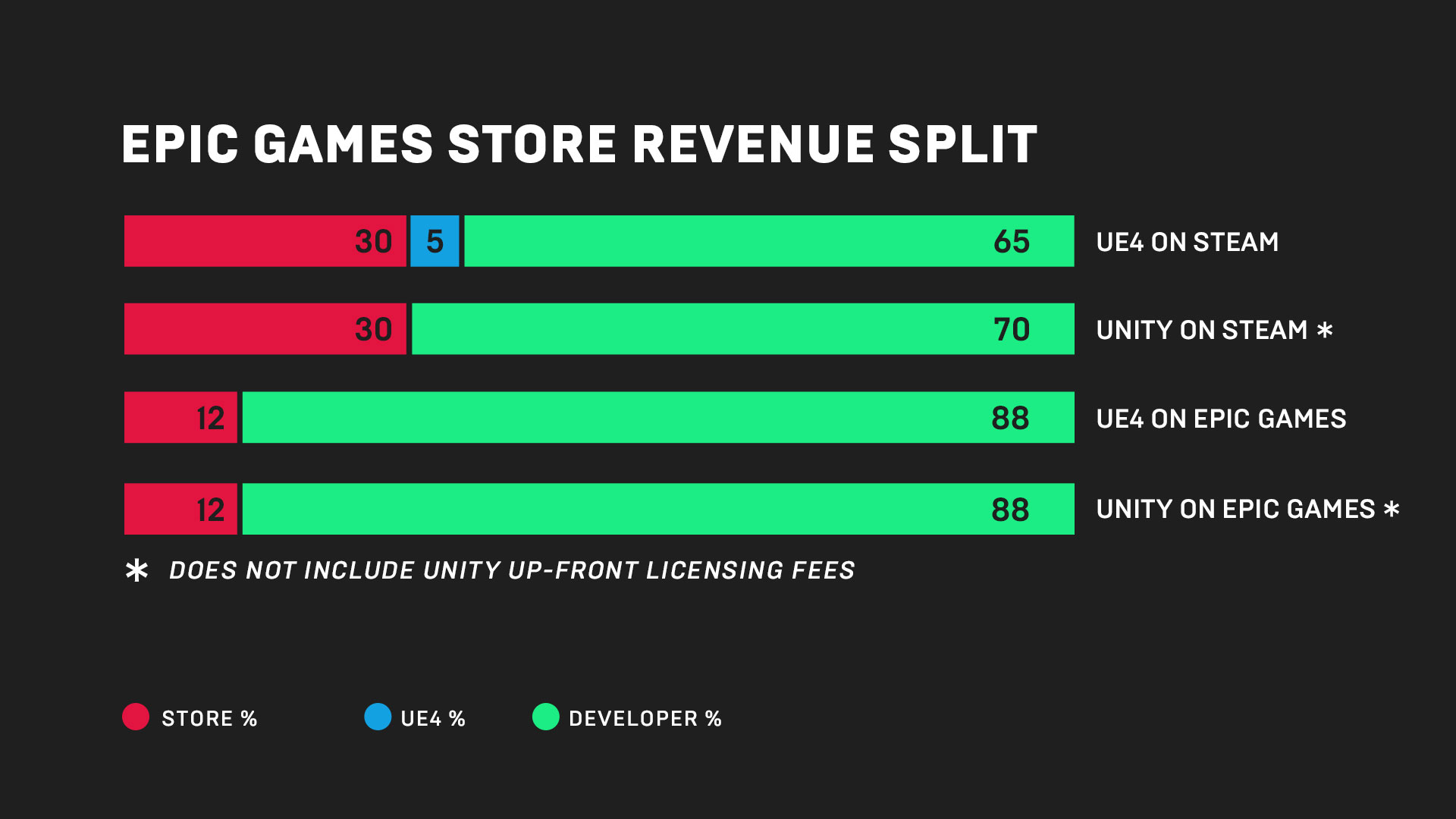The team behind Fortnite and the Unreal Engine which created it is going one level deeper and making a push for its own game storefront to challenge Valve’s Steam on PC and potentially Google Play on Android.
The Epic Games store promises more revenue per sale to developers than other options and “will launch with a hand-curated set of games on PC and Mac, then it will open up more broadly to other games and to Android and other open platforms throughout 2019,” an announcement post states.
Here’s the chart used to explain revenue split options to developers releasing virtual worlds made with Epic’s Unreal Engine 4 toolset or the leading competitor, Unity.

In an emailed Q&A with Game Informer, Epic Games CEO Tim Sweeney wrote “the Epic Games store doesn’t have any sort of VR user interface, however, games released on the store can support VR if they choose.”
We reached out to Epic Games representatives for more information about how VR support will be implemented, but we haven’t received a detailed response yet. Sweeney is quoted on the OpenXR website in support of the Khronos standard, stating “we’ll adopt and support the resulting API in Unreal Engine.”
We’ll update this post with any new information from Epic about how its store will enable discovery of VR apps or how end users can make sure their system can run an app available through Epic’s store.


























